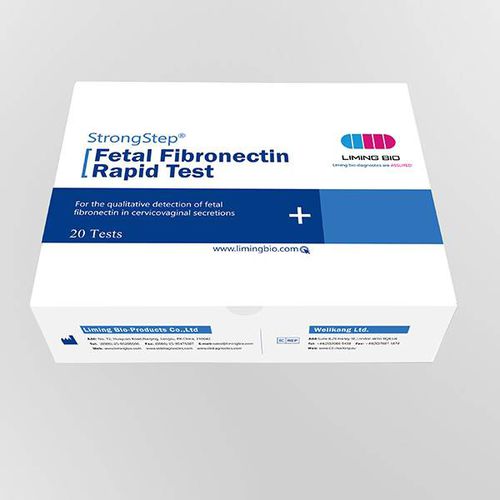The StrongStep® PROM test is a visually interpreted immunochromatographic test intended to be used for the qualitative detection of fetal fibronectin in cervicovaginal secretions. The presence of fetal fibronectin in cervicovaginal secretions between 22 weeks, 0 days and 34 weeks, 6 days of gestation is associated with elevated risk of preterm delivery.
TRODUCTION
Preterm delivery, defined by the American College of Obstetricians and Gynecologists as delivery prior to the 37th week of gestation, is responsible for the majority of non-chromosomal perinatal morbidity and mortality. Symptoms of threatened preterm delivery include uterine contractions, change of vaginal discharge,vaginal bleeding, backache, abdominal discomfort, pelvic pressure, and cramping. Diagnostic modalities for identification of threatened preterm delivery include uterine activity monitoring and performance of a digital cervical examination, which allows estimation of cervical dimensions. These methods have been shown to be limited, as minimal cervical dilatation (< 3 centimeters) and uterine activity occur normally and are not necessarily diagnostic of imminent preterm delivery. While several serum biochemical markers have been evaluated, none have been widely accepted for practical clinical use.
Fetal fibronectin (fFN), an isoform of fibronectin, is a complex adhesive glycoprotein with a molecular weight of approximately 500,000 daltons. Matsuura and co-workers have described a monoclonal antibody called FDC-6, which specifically recognizes III-CS, the region defining the fetal isoform of fibronectin.




